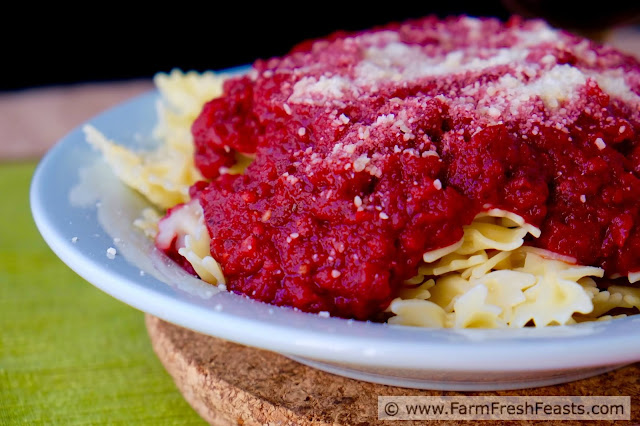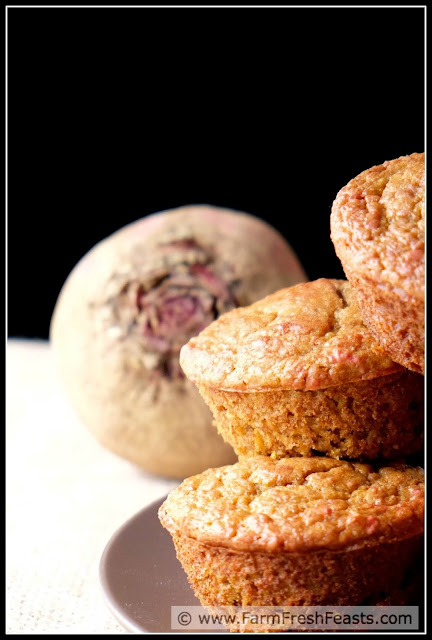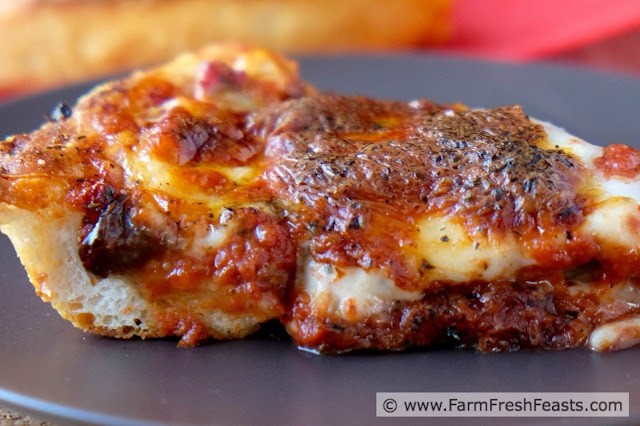Practical advice for how to save ripe summer farm share vegetables--by roasting--for use in a kid-friendly spaghetti sauce all year long.
The purpose and timing of this post reflects my mission for this blog: to provide practical support for local eating. We chose to get a large Community Supported Agriculture (CSA) farm share
Let's talk fantasy versus reality, especially as it pertains to spaghetti sauce. In a fantasy world, I'd start with ingredients like this and spend a leisurely day chopping and simmering in my spotless kitchen [this is my fantasy, after all]. Tomatoes would always be ripening in m weed-free back yard [no need to watch where you step either], basil would be fresh for the plucking, and I'd have an interesting assortment of eggplant, peppers, fennel and squash to make flavorful sauce. [Oh, and plenty of freezer space while we're talking fantasies].
In reality, this is what the start of my spaghetti sauce often looks like. It's a bit beetier, no? I grab a bag of vegetables and a piece of Parm rind out of the freezer, a jar of tomatoes out of the pantry, and 30 minutes later I've got sauce. Homemade sauce in a half an hour is possible only because I did some prep work in the late summer, as in right about this time of year. Typically I roast my vegetable surplus and freeze it in bags as shown, but this year I'll be throwing the farm share on the grill.
When I have more propane.
Funny, how propane is a necessary ingredient when you have a gas grill. Sunday night I came back from sled hockey camp [my son plays, I'm a hockey mom] planning to Grill All The Things in the crispers. I'd forgotten I was almost out of propane when I made pizza last. I turned on the oven instead. Using my previous little grill, a tank lasted almost 2 years. Now it lasts about 4 months. Just like you need lids and jars when you're ready to get canning, or a fresh roll of bags when you're freezing produce (Amazon affiliate link), you need propane to grill. If you have a gas grill, that is. Lesson learned.










